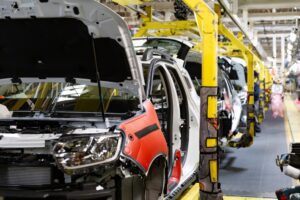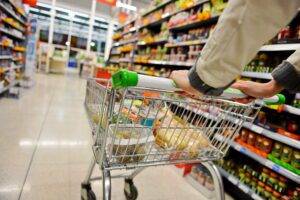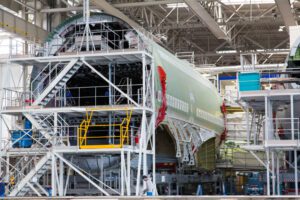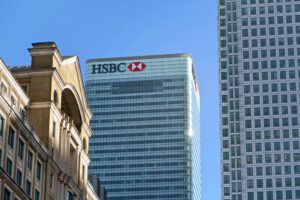Post Content
April 29, 2025
The sugar tax currently applied to fizzy drinks could soon be extended to milkshakes and similar products under new government proposals revealed on Monday.
The Treasury launched a consultation on plans to remove the exemption for dairy-based drinks—and their non-dairy alternatives such as oat and rice milk—bringing them under the scope of the soft drinks industry levy (SDIL). The government is also considering tightening the sugar threshold that triggers the levy, lowering it from 5g to 4g per 100ml.
Chancellor Rachel Reeves first indicated last year that the government would consider broadening the scope of the levy. The Treasury has now confirmed its intention to move ahead with the changes, citing health concerns over the high sugar content of many milk-based drinks.
According to government analysis, about 203 pre-packed milk-based drinks currently on the market—accounting for 93 per cent of the category’s sales—could be affected unless manufacturers reduce their sugar levels.
The SDIL was introduced in 2018 by the Conservative government as part of a broader anti-obesity drive. Milk-based drinks were originally exempted due to concerns over the importance of calcium intake, particularly for children. However, the Treasury now says that such drinks contribute only 3.5 per cent of young people’s calcium intake, suggesting that the potential health benefits of their consumption are outweighed by the risks posed by excess sugar.
“By bringing milk-based drinks and milk substitute drinks into the SDIL, the government would introduce a tax incentive for manufacturers to build on existing progress and further reduce sugar in their recipes,” a Treasury spokesperson said.
Following the introduction of the SDIL, 89 per cent of fizzy drinks sold in the UK were reformulated to avoid the tax, significantly reducing their sugar content.
However, the proposal has drawn criticism from some quarters. Christopher Snowdon, head of lifestyle economics at the free-market thinktank the Institute of Economic Affairs, said: “The sugar tax has been such a dramatic failure that it should be repealed, not expanded. Sugar taxes have never worked anywhere. What happened to Starmer’s promise to not raise taxes on working people?”
The government’s consultation on the proposed changes is open and will run until 21 July, inviting views from industry stakeholders, public health groups and the wider public.
Read more:
Milkshakes could face sugar tax under Treasury plans to expand levy
President Trump is preparing to soften the blow of his new car tariffs by introducing measures that would prevent stacking duties and offer partial reimbursements to US carmakers for imported parts.
The car tariffs, which came into effect on April 3 and are set to extend to car parts on May 3, had sparked concern across the automotive industry. However, Trump is expected to announce a reprieve before a visit to Michigan—home to the Detroit Three carmakers and more than 1,000 major suppliers.
Howard Lutnick, the commerce secretary, said: “President Trump is building an important partnership with both the domestic automakers and our great American workers. This deal is a major victory for the President’s trade policy by rewarding companies who manufacture domestically, while providing runway to manufacturers who have expressed their commitment to invest in America and expand their domestic manufacturing.”
Under the expected changes, carmakers would be allowed to receive partial reimbursements based on the value of their US car production. The policy would also be applied retroactively, meaning manufacturers could recover some of the charges already incurred since the tariffs were introduced. Additionally, car imports will not be hit with multiple levies, such as overlapping tariffs on steel and aluminium.
Mary Barra, chief executive of General Motors, welcomed the anticipated relief: “We believe the president’s leadership is helping level the playing field for companies like GM and allowing us to invest even more in the US economy,” she said.
The move comes at a critical time for UK car manufacturers. The United States is the second-largest export market for British-made vehicles, accounting for 16.9 per cent of exports in 2024—around 100,000 vehicles—worth £7.6 billion, according to the Society of Motor Manufacturers and Traders (SMMT).
A recent study by the US International Trade Commission warned that a 25 per cent tariff could slash car imports by nearly 75 per cent, posing a serious threat to the UK’s automotive sector. Some UK carmakers are already feeling the strain: Jaguar Land Rover paused shipments of British-built vehicles to the US for a month as it works to manage the fallout from the new duties.
While Trump’s expected adjustments will ease immediate pressure on American manufacturers, uncertainty remains for international exporters, who continue to watch closely for further developments.
Read more:
Trump poised to ease impact of car tariffs with reimbursement plan for US automakers
Britain’s biggest supermarkets are pumping hundreds of millions of pounds into promotional deals as competition in the grocery sector heats up amid ongoing cost of living pressures.
Almost 30 per cent of supermarket spending was on special offers and discounts in the four weeks to 20 April, according to figures from market research group Kantar. The surge in promotional activity equates to £347 million spent on price cuts, many linked to loyalty card schemes.
Fraser McKevitt, head of retail and consumer insight at Kantar, said: “Grocers have been offering big price cuts to stay competitive. They’ve invested in price cuts which were the main driver of promotional growth.” At Tesco and Sainsbury’s, nearly 20 per cent of items sold are part of a price match scheme, featuring in almost two-thirds of customer baskets.
The aggressive push on discounts comes as supermarkets grapple with thin profit margins and intensifying competition. Last month, Asda warned of significantly lower profits this year as it pledged to invest more heavily in lower prices—a move that triggered a £4 billion slump in the combined market value of listed rivals Tesco, Sainsbury’s and Marks & Spencer.
Asda has since cut prices on 1,500 products, including popular items like Cathedral City cheddar cheese and Head & Shoulders shampoo. Since January, Asda said it had slashed prices across nearly 10,000 products. Yet despite these efforts, Asda was the only major supermarket to see a decline in sales over the past three months compared with the same period last year.
While promotional activity is increasing, grocery price inflation remains a challenge for shoppers. Inflation rose to 3.8 per cent in the four weeks to 20 April, its highest level in over a year and well above the recent low of 1.4 per cent in October 2024.
The Easter period helped boost overall spending, with supermarket sales up 11 per cent compared with last year’s Easter run-up, despite a 17.4 per cent jump in chocolate confectionery prices. McKevitt noted that chocolate egg volumes still rose slightly by 0.4 per cent year-on-year, and sunny weather also led to a 31 per cent surge in burger sales as shoppers fired up their barbecues.
In terms of market share, Tesco remains the UK’s largest supermarket with 27.8 per cent, followed by Sainsbury’s at 15.3 per cent and Asda at 12.3 per cent. Aldi holds fourth place with an 11 per cent share, having overtaken Morrisons in 2022. Ocado continues to be the fastest-growing grocer, with sales up 11.8 per cent over the past year, although its overall share remains modest at 1.9 per cent.
With inflation still pressuring household budgets and competition intensifying, supermarkets are likely to keep up the battle for shoppers’ loyalty well into the rest of the year.
Read more:
UK supermarkets spend hundreds of millions on promotions as grocery price war intensifies
Keir Starmer’s Labour government has been warned that its tough stance on benefits risks costing the UK economy more than £38 billion a year while pushing more people into poverty and increasing pressure on public services.
The anti-poverty charity the Trussell Trust said that, despite Labour’s repeated promises of no return to austerity, attempts to curb welfare spending could have severe economic and human consequences. In a report commissioned from WPI Economics, the charity argued that Britain’s elevated poverty levels are already sapping potential output and damaging the nation’s finances.
The intervention comes as the government prepares to publish its child poverty strategy in June, amid growing unrest among Labour MPs over the £5 billion in benefit cuts announced by Chancellor Rachel Reeves in her spring statement. Ministers are reportedly ruling out scrapping the controversial two-child benefit limit introduced by the Conservatives, a policy campaigners warn could drive child poverty to record highs.
The Trussell Trust’s report highlights that as many as 9.3 million people, including 3 million children, faced hunger and hardship in the financial year ending March 2023. Defined as living more than 25 per cent below the poverty line set by the Social Metrics Commission, these households struggle with day-to-day essentials.
The economic toll is significant. Lower employment rates and weakened productivity among people in deep poverty mean the UK economy is missing out on £38.2 billion in annual output. This, in turn, deprives the Treasury of £18.4 billion in tax revenues and forces £5.3 billion of extra spending on social security support. Additional demands on services such as the NHS, social care and education are estimated to cost the exchequer another £13.7 billion annually.
Helen Barnard, director of policy, research and impact at the Trussell Trust, urged ministers to urgently rethink their welfare policies, particularly cuts to disability benefits and the maintenance of the two-child limit. “Slashing support for disabled people who most need our collective protection from hunger is cruel, irresponsible, and out of touch with what the public wants,” she said. “Turning this tide would have huge benefits, not just to individuals, but for us all.”
The charity argued that abolishing the two-child limit alone would lift 670,000 people—including 470,000 children—out of hardship, reducing costs to the economy and public services by more than £3 billion.
It also called for the introduction of an “essentials guarantee” within universal credit to ensure that basic living costs are met, a measure that could lift more than two million people out of deep poverty.
A spokesperson for the Department for Work and Pensions defended the government’s approach, saying: “We have set out a sweeping package of reforms to health and disability benefits that genuinely supports people back into work and lifts people out of poverty, while putting the welfare system on a more sustainable footing.”
As Labour prepares its next phase of economic reforms, the warning from the Trussell Trust highlights the political and fiscal risks of pursuing further cuts in a country still grappling with the legacy of years of squeezed living standards.
Read more:
Labour’s benefit cuts could cost UK economy billions, warns Trussell Trust
When modern progressives claim to support equity, what they really mean is the confiscation of wealth and transferal of private property to politically-favored groups. These policies have a sorry history from Reconstruction and continued through the 20th century communist regimes.
Airbus has finalised a major deal to acquire parts of Spirit AeroSystems’ UK business, including the historic Short Brothers factory in Belfast and key operations in Prestwick, as it moves to secure critical components for its aircraft production lines.
The agreement follows Boeing’s $4.7 billion takeover of Spirit last year, a move aimed at reinforcing its supply chain. However, the complex web of Spirit’s commitments to both Boeing and Airbus required months of delicate negotiations to untangle.
Under the terms announced, Airbus will assume control of the Belfast facility producing wings and fuselage sections for the A220 — Airbus’s 130-seater jet — as well as the Prestwick site, where components for the A320 and A350 programmes are manufactured. Additional Spirit sites in the United States, France and Morocco are also included in the deal.
The transfer of these assets further cements the UK’s role as a global centre of excellence for Airbus wing production, joining its major plant at Broughton in north Wales and its design and engineering operations in Filton, near Bristol.
However, the future remains uncertain for many of the 3,500 staff at Spirit’s Belfast operations. Trade unions warned that up to 2,000 workers face ongoing uncertainty, particularly those working on non-Airbus contracts.
Airbus will directly take on around 1,000 workers involved in producing A220 wings, while it seeks a third-party supplier to take over the fuselage operations involving approximately 500 staff. Meanwhile, employees involved in maintenance, repair and non-Airbus manufacturing for clients such as Rolls-Royce and Bombardier are expected to remain under Boeing’s ownership until a new buyer is found.
At Prestwick, Airbus is taking control of 1,150 workers supporting its A320 and A350 supply chains, although it hopes this arrangement will be temporary until another aerospace manufacturer can be found to acquire the facility.
As part of the transaction, Airbus will receive $439 million in compensation but has agreed to provide $200 million in credit lines to support investments in the newly acquired businesses.
“Airbus aims to ensure stability of supply for its commercial aircraft programmes through a more sustainable way forward, both operationally and financially, for key Airbus work packages,” the company said in a statement. An official added that the focus was on securing activities that are vital to Airbus’s current production ramp-up.
The Belfast factory became a cornerstone of Airbus’s A220 programme when it acquired the struggling C-Series jet from Bombardier and rebranded it under the Airbus name.
News of the deal was well received by investors, with Airbus shares rising by €3.72, or 2.7 per cent, to €144.32.
Read more:
Airbus finalises deal for Spirit plants in Belfast and Prestwick amid supply chain reshuffle
HSBC has set aside $876 million to cover expected bad loans, warning of growing risks from President Trump’s escalating trade war and protectionist policies that are disrupting global commerce.
In its first-quarter results, the FTSE 100-listed bank revealed that $150 million of the provision was linked directly to “deterioration in the forward economic outlook” caused by sweeping new US tariffs. The move weighed on the bank’s performance, with pre-tax profits falling to $9.5 billion from $12.65 billion a year earlier, when HSBC had benefited from the one-off sale of its Canadian business.
Despite the drop, HSBC’s results still came in ahead of City analysts’ expectations of $7.8 billion. However, the bank cautioned that it could face an additional $500 million in credit losses under “plausible downside scenarios that model significantly higher tariffs, and related impacts on growth, policy rates and inflation”.
The warnings reflect HSBC’s unique vulnerability to the fracturing global trade order. Although headquartered in London today, HSBC was founded in Hong Kong 160 years ago and has long served as a financial bridge between East and West. Hong Kong remains its single largest market, and any breakdown in trade flows between China and the United States risks destabilising its business model.
“The macroeconomic environment is facing heightened uncertainty, in particular from protectionist trade policies, creating volatility in both economic forecasts and financial markets and adversely impacting consumer and business sentiment,” the bank said. “Supporting our clients through this volatile period is our top priority.”
The intensifying trade tensions are among the first major challenges facing Georges Elhedery, HSBC’s new chief executive, who took over in September. Elhedery is also overseeing a major restructuring, aiming to slash $1.5 billion in costs by the end of next year—a plan expected to result in thousands of job losses.
Despite the turbulence, HSBC sought to reassure investors by announcing a $3 billion share buyback and declaring an interim dividend of 10 cents a share, equivalent to a further $1.765 billion payout.
As Washington and Beijing remain locked in an increasingly acrimonious standoff, HSBC’s results highlight the mounting risks for institutions built on free-flowing global trade—and the difficult balancing act ahead for the bank as it navigates an era of protectionism and geopolitical volatility.
Read more:
HSBC sets aside $876m for bad loans amid fallout from Trump’s trade war
Post Content
Post Content
- 1
- 2






